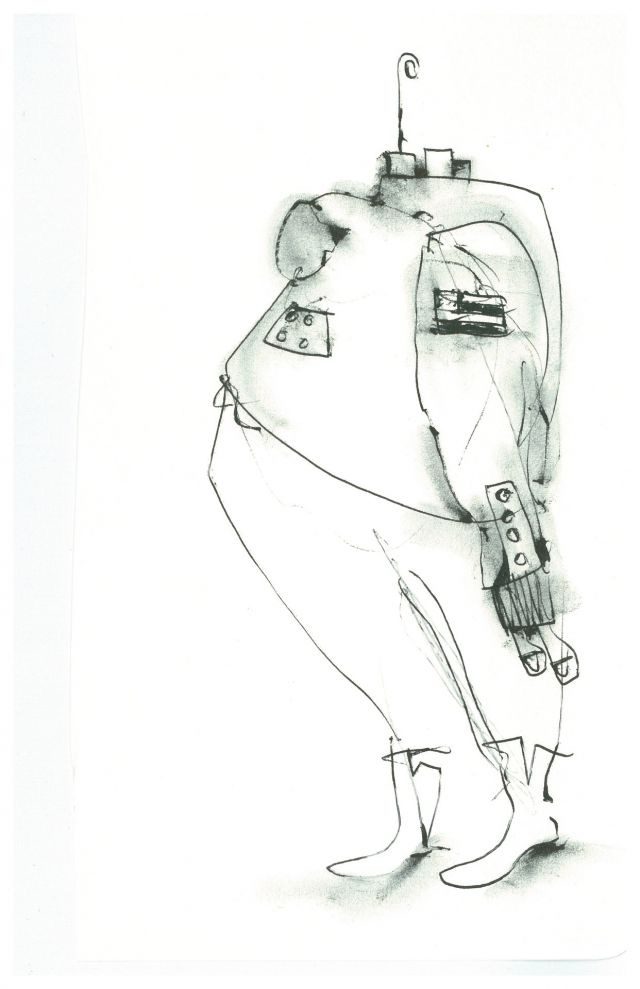Voyages to the Moon
Maddd Science

My favorite Christmas gift this year? Voyages to the Moon, a 1948 exploration of humanity's millennia-long obsession with visiting the moon, written by Dr. Marjorie Hope Nicolson (the first woman to be a Columbia University grad school professor, according to her Wikipedia page).
I have to admit that the fact that this book is a deep cut is part of why I love it. I first found it in college when I was idly searching the library's database for interesting books and looked up "moon." I actually had to retrace that exact search to find the book when putting together my Christmas wish list this last year. Glad my college library database is online.
Anyway, the book's packed with details about some truly bonkers fiction: Attempts at reaching the moon include artificial wings, ships powered by hot air balloons, vials of morning dew strapped to one's body, and magnetism. Once on the moon, explorers have found lunar coppersmiths, demons, and, on one occasion, the Bird Emperor.
Nicholson delivers it all with a pleasantly bone-dry academic tone that honestly improves the fact that she's talking about Baron Munchausen climbing a bean stalk to the moon or whatever. She's funny, too. Here's Nicholson on a book about traveling to the moon by the "harnessing of birds," anonymously written about a hundred years after that form of fictional moon travel fell out of favor: "Posterity has continued to preserve the anonymity of that author more zealously than he might have wished." Fuck 'im up, Nicholson!
There's not a lot about the book online. Kirkus gives it muted praise in its review. "An obscure, somewhat esoteric interest is here given comprehensive, interesting coverage, in a learned, scholarly thesis," it says. Then it ends with a diss of a two-word sentence: "Limited appeal."
In my view, the narrow scope of the book is what make it so fascinating and should broaden the appeal. Besides, the topic says a lot about humanity's relationship with fiction. The moon is the most popular pan-cultural fantasy land ever, since it has been highly visible yet inaccessible to every civilization on Earth for all of history. It attracts a lot of satirists, from the second century's Lucien to Cyrano de Bergerac to Jonathon Swift, who all poked fun at then-current politics or scientific discoveries.
Here's a review that I like better, from an anonymous 2016 Amazon customer:
"A classic that ought to be much better known than it is. Meticulously researched, extremely scholarly, yet totally fluid and accessible, this book summarizes accounts of space travel and aviation prior to the invention of the balloon in the late 1700s. Includes well-known sources such as Lucian of Samosata, Kepler, and Godwin as well as many more obscure works."
Anyway, that's my book recommendation for 2019. It costs around 20 bucks on Abe Books at the moment. And if anyone wants to get it back in print, my only request is that you let me write the introduction. I'll probably write one myself once it's in public domain in another 25 years or so.
Here's a fun TV Tropes page I recently enjoyed. I'd love to see a TV show that follows a retired college-age Encyclopedia Brown who's just trying to overcome his past life as a child celebrity detective while dealing with guilt over those he's wrongfully imprisoned because he thought mule couldn't become pregnant.
Conviction by Counterfactual Clue
TV Tropes
In Encyclopedia Brown and similar riddles there are puzzles about coins being a forgery because the name of the ruler is King Bob the First or similar. Obviously, no monarch referred to himself as The First, right? Except that they did—either to show that they're first among equals, or because they had a son named after them, or because they would indeed be the first monarch with that name, as was, for instance The Pope John Paul the First. Or recently abdicated Juan Carlos I (John Charles the First) of Spain. Interesting case that of Charles the First of Spain and Fifth of Germany, or James the Sixth of Scotland and First of England.
Finally, an article on a topic I think about a lot: the tension between stories and the medium they're presented through. I particularly like the connection here about how early TV pulled on radio stories like Dragnet and Lone Ranger in order to find content that could reel people in, and how streaming TV is now doing the same with podcasts.
In the Race for Content, Hollywood Is Buying Up Hit Podcasts
Jaclyn Peiser, New York Times
Facebook Watch has ordered 10 episodes of “Limetown,” based on a fictional podcast about the disappearance of 300 people at a research facility in Tennessee. Jessica Biel has signed on as an executive producer and lead actor, and the podcast’s creators, Zack Akers and Skip Bronkie, are on board as the show’s writers.
One last thing: If you're enjoying this newsletter, maybe show it to someone? Just forward this issue to a friend or two who you think will enjoy hearing about fictional moon landings, or recommend my signup link in a private Facebook group or Slack channel centered on writing or storytelling. I mean, this issue mentions the Bird Emperor of the moon. If anything, your friends should be thanking you for letting them in on it.
Next Time on Maddd Science: Indiana Jones
Header image: “moon walker,” by Daniel Williams.
Like this issue? Maybe forward it to someone you think would like it, too. My marketing budget just covers that and my twitter account. And if someone forwarded this to you, you can subscribe here!
